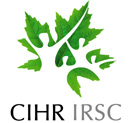Clinical Assessment of the Utility of Sequencing and Evaluation as a Service (CAUSES)
The CAUSES Research Clinic at B.C. Children’s Hospital provides a whole-exome sequencing (WES) service for children with suspected genetic disorders that aims to identify the genetic cause of their condition. Key aspects of the evaluation include: 1) determining the healthcare system and societal costs of the diagnostic odyssey for children with suspected genetic disorders; 2) measuring the impact of obtaining a diagnosis through CAUSES on patients’ healthcare utilization and caregivers’ quality of life; and 3) modeling the cost-effectiveness of offering diagnostic WES through the CAUSES program as a first-line rather than last resort diagnostic test for appropriate patients.








